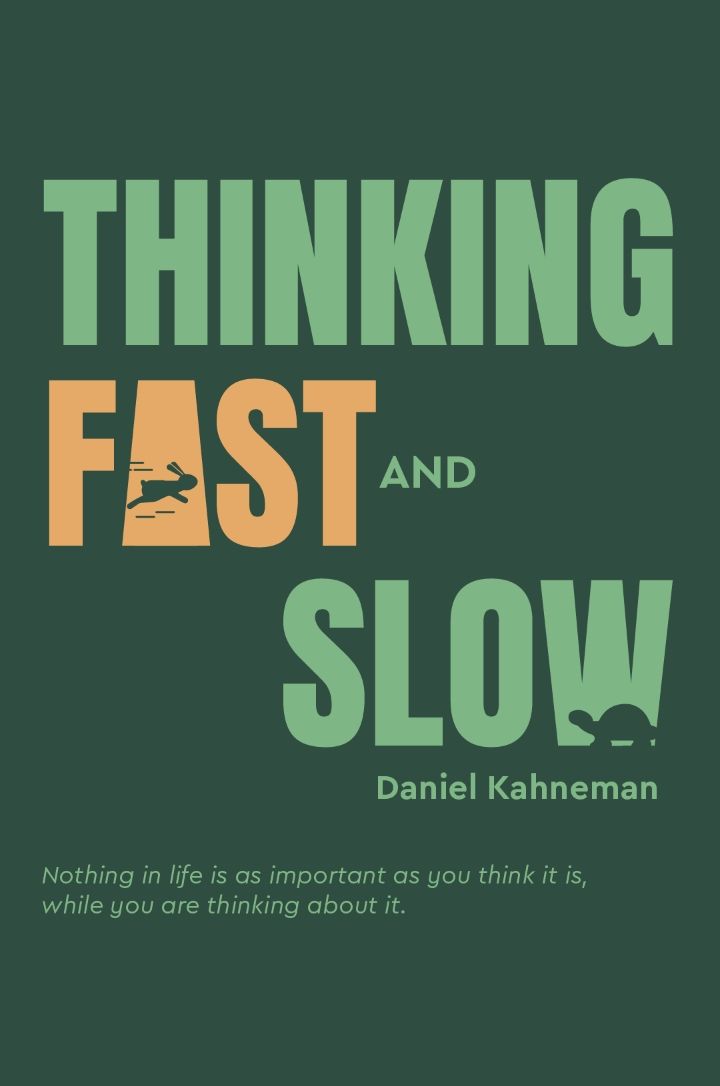Audio available in app
Loss aversion makes us riskaverse from "summary" of Thinking, Fast and Slow by Daniel Kahneman
Loss aversion is a powerful psychological force that influences our decision-making. It refers to the tendency for people to strongly prefer avoiding losses over acquiring gains of equal value. This cognitive bias is deeply ingrained in human nature and impacts various aspects of our lives, including how we approach risk. When faced with a decision that involves potential loss, our minds react more strongly than they would to an equivalent opportunity for gain. This asymmetry in our emotional response leads us to be more risk-averse when considering choices that could result in losses. The fear of losing something we already possess often outweighs the potential benefits of taking a risk. This aversion to losses can have significant implications for our behavior, particularly in areas such as investments, gambling, and career decisions. People tend to be more cautious when there is a possibility of losing money or resources, even if the potential gains are substantial. This mindset can lead to missed opportunities for growth and advancement. The fear of loss can also influence our willingness to try new things or step outside of our comfort zones. When the perceived risk is high, individuals may opt for familiar and safe choices, even if they are not the most beneficial in the long run. This aversion to loss can act as a barrier to innovation and progress. Understanding the impact of loss aversion on our decision-making can help us become more aware of our biases and make more informed choices. By recognizing when our fear of loss is clouding our judgment, we can take steps to mitigate its influence and consider the potential gains more objectively. Overcoming our natural aversion to loss can open up new possibilities and opportunities for growth.Similar Posts
Microeconomics studies individual decisions and how they affect markets
Microeconomics is all about looking at the small picture. It's about zooming in on individual decisions and how they can have a...
Remember that financial success is a journey that requires patience and discipline
Financial success is not something that happens overnight. It is a journey that requires time, patience, and discipline. Like a...
Focus on what you can control, not what you can't
One of the most important principles to keep in mind when it comes to managing money is to focus on the things that are within ...

Learn from successful individuals and adopt their strategies and habits
When it comes to achieving success and wealth, one of the most effective strategies is to learn from those who have already ach...
Invest wisely
Investing wisely means making smart choices with your money to help it grow over time. It's about understanding your financial ...
The significance of financial education
Financial education is a crucial aspect of personal development that often gets overlooked in our society. Many people grow up ...
Take bold and decisive actions towards your goals
When it comes to achieving your financial goals, it's essential to take bold and decisive actions. This means stepping out of y...

Financial education is key to making informed decisions about money
Understanding how money works, and the best ways to manage it, is crucial for making informed decisions about our finances. Thi...
Stay informed about the companies you invest in
Investing in stocks can be a profitable venture if done right. One important aspect of successful investing is to stay informed...
Surrounding yourself with successful people can help you achieve your financial goals
Surrounding yourself with successful people is one of the key principles that can help you achieve your financial goals. When y...

